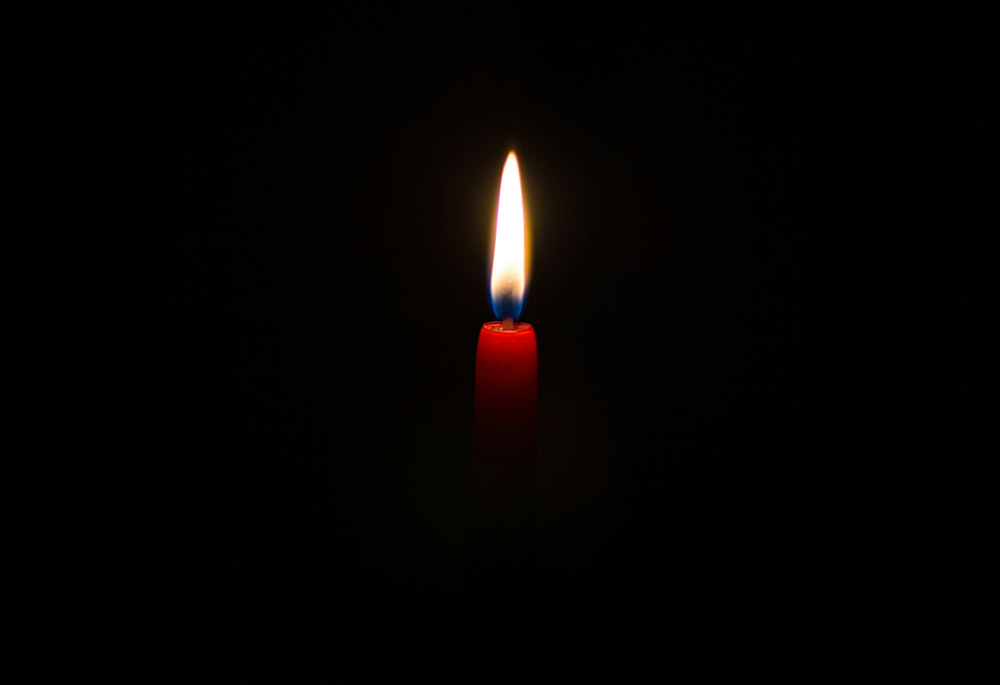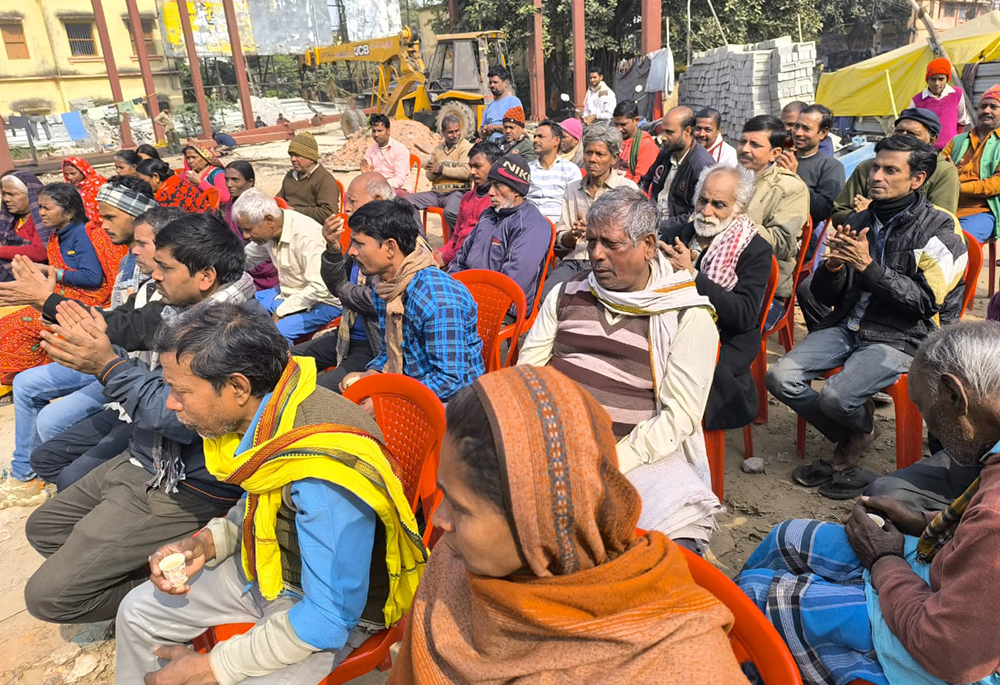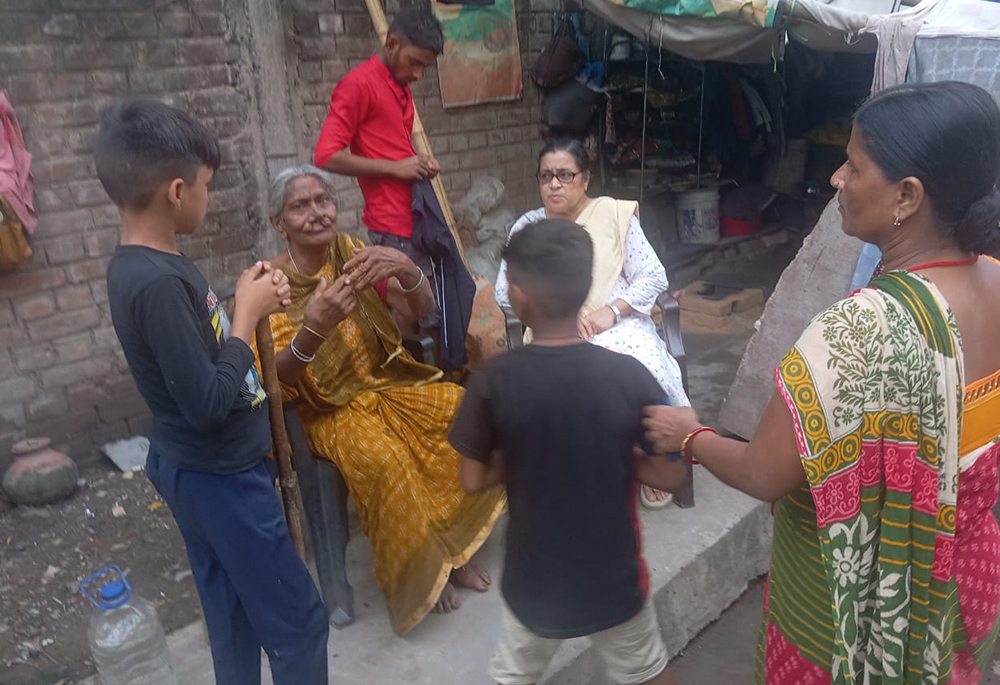
(Unsplash/David Monje)
Religious life as we have known it has been a very effective means of being at the service of people. It has brought women and men to live the Gospel very radically. Since early times, many dedicated people ventured out to distant places to spread the word of God and bring about the reign of God. If we understood it very seriously, it was living the mission of Jesus as described in Luke 4: "The Spirit of the Lord is upon me …"
After Vatican II, the windows of the Catholic Church were opened to fresh air, and an open invitation was given: Religious life is not an option to be with the poor, it is the evangelical imperative of the hour— it's no longer an option.
Nearly 60 years later, we see that religious life has undergone drastic changes. We see religious congregations backtracking, diffident to respond to the prophetic call of being the conscience of the church and the world at large. What, then, are we consecrated women and men called to be? There's a dearth of true prophetic people in our times. How different are we? Are we truly the yeast in the dough, the salt of the world, the light in the darkness?
I grapple with these questions each day as I reflect every morning on the purpose of my presence here in Patna, Bihar, India, for these 27 years. I look deep within myself, search for my purpose, get energized, move ahead — but often I stop and ask myself: Am I the only one? Am I an iota among the ocean of many who live within their institutions and strive to be faithful to their calling?
The essence of religious life, to me, is being passionately in love with the person of Jesus. To keep this fire ablaze, we have to live out the words of Luke 4. We have to daily redefine for ourselves what it is that gives the impetus to leave the warmth of our families and launch out on an unknown journey.

Vendors are gathered in Patna, India, at Kadam Kuan on Vendor's Day, Jan. 20, 2024. Sr. Dorothy Fernandes and others work with the vendors to support their livelihoods, Fernandes has served in Patna for 27 years. (Sudarshan Kumar)
As Joan Chittister says: We have to "fan the flame of a world yet unseen but sure to come." Within the valiant religious "lies the embers of the spiritual life that not only make contemporary religious life really religious but the future possible as well."
Today, many religious, under the guise of spirituality and the garb of ritualistic practices, find recourse for living religious life. But what did Jesus do? He withdrew from the people in the early and late hours to be in communion with his Father, perhaps to seek answers for the complicated issues he was grappling with. Jesus, while he walked this Earth, was truly human, truly divine. Then, being energized, he mingled with people; he went where life lay raw, filled with love, compassion and forgiveness.
So, where am I today? After participating in the Eucharist, how do I live it out in my ministry?
Many religious work in institutions and at times are not aware of what happens outside their compound wall. Many believe that once their institutional duties end, so does their day — remaining time is for rest, and relaxation. How can we then become the conscience of the church and society, if we do not stand with struggling humanity? How can we become the human face of Jesus if we do not enter the world of those on the periphery?

Sr. Dorothy Fernandes visits an older woman who lives on the pavement in the Gayatri Mandir area on Aug. 1. (Sudarshan Kumar)
I struggle to understand the impact of many of us religious, especially in India, where we number over 126,000. What has been our impact? How have we contributed to the people of our country's population who are struggling to make ends meet? Do we understand hunger, poverty and the challenge of having to provide our families with the basic necessities of life?
In the new evangelization, we are invited to meet people where they are, standing by them in solidarity. Those on the periphery seek recognition, acceptance, and dignity.
In my experience of being with people on the margins, I have always been struck by their cheerfulness, the warmth of their welcome, and their willingness to share whatever they have. These are the people who continue to define my spirituality, motivating and inspiring me in many silent ways to keep the fire ablaze. Their zest for life and resilience inspire me in the struggles of life.
Advertisement
I am grateful to my congregation for trusting me to live singly, to form communities with people, and to widen my tent as mandated by our congregational gatherings over the years. I consider myself privileged. However, life has not always been smooth sailing; there have been some furious storms. I have learned to dance in the rain, finding strength in storms and living my life with an attitude of gratitude.
But I continue to ask myself — who will light the way? Who will begin to reframe religious life? While some in my congregation admire who I am, here in Patna, many questions remain through curious eyes. Sadly, no one has come to join this path.
What then keeps me going? My deep conviction of my inner calling. My belief that walking the unbeaten path can be lonely and journeying along the narrow path may lack companions. My strength comes from quiet moments spent each morning and evening, reflecting on my day, seeking wisdom and strength to be open to life and respond where I am being called.







